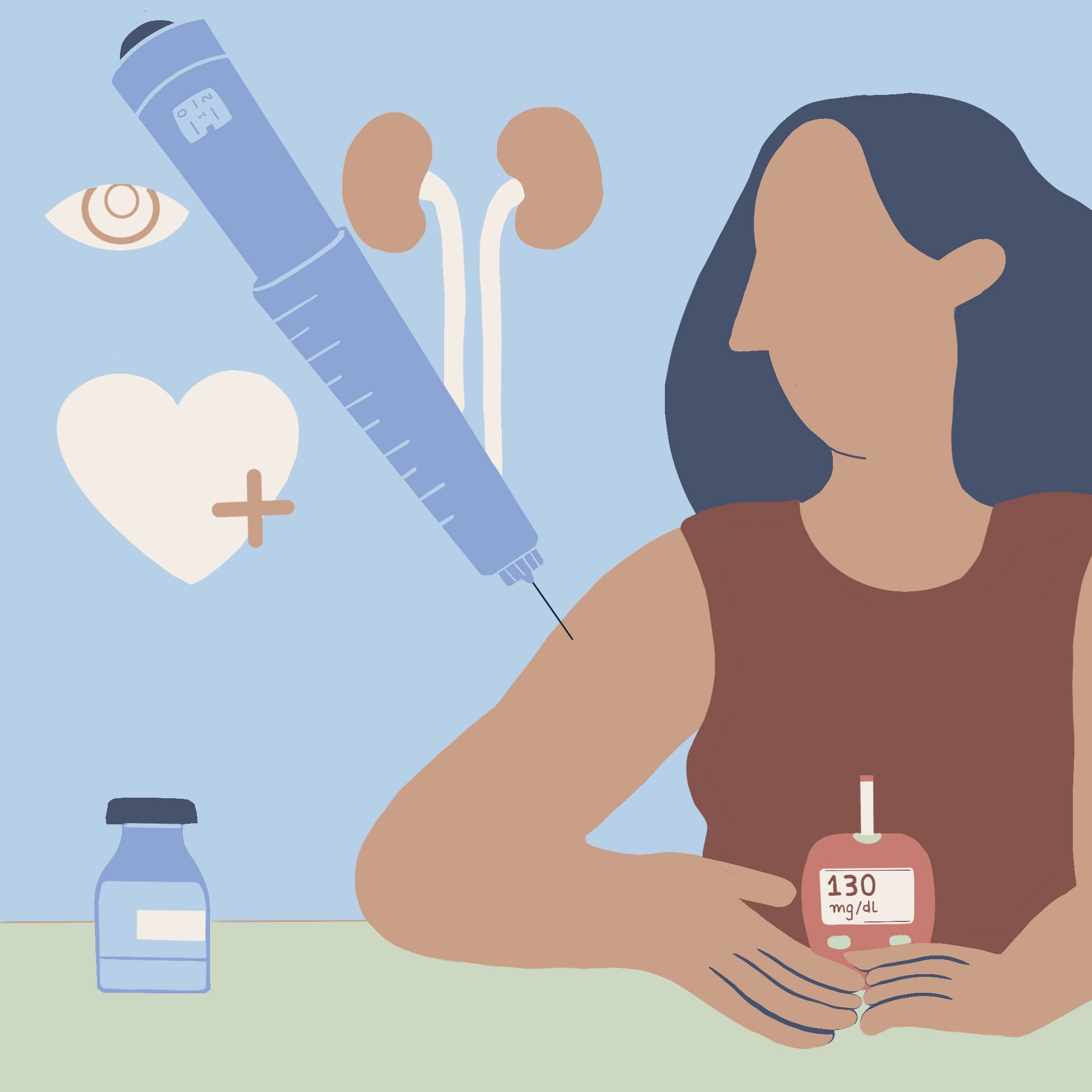This article is compiled by Sanjana Varma, a freelance writer of Proactive For Her.
What is Insulin?
Insulin is a hormone that is produced naturally in our bodies. Its main role is to allow cells throughout the body to take up glucose (sugar) from blood in order to use it as a source of energy. Naturally occurring human insulin is made by beta cells within the pancreas. When people without diabetes eat food, these beta cells sense sugar or other carbohydrates in the blood and release just the right amount of insulin necessary to maintain normal blood sugar levels.
Most people begin taking insulin when diet, exercise and oral medication are no longer sufficient to keep blood glucose levels in check. Sometimes your doctor may put you on insulin as a temporary measure in special situations for example, before major operations, or in pregnancy. It’s important to keep your glucose levels as close to normal limits as possible because high blood sugar levels interfere with organ function and can eventually cause blindness, kidney failure, and heart disease.
People with diabetes use bioengineered insulin to replace or supplement their bodies’ insulin. Thanks to biotechnology, scientists can mass-produce human insulin. They’ve also created synthetic insulins that are similar, even superior, to human insulin for the treatment of diabetes.
How do I use insulin?
Insulin is injected into the fatty tissue just beneath the skin preferably on the abdomen, upper arm or thighs. Most people use an insulin syringe to inject insulin; some use an insulin pen or insulin pump. Some need more than one injection in a day to control their blood sugar level. Your doctor can tell you the dose of insulin appropriate for you.
Does insulin have any side effects?
The most common side effect of insulin is hypoglycemia or low blood sugar. Hypoglycemia occurs when you take more insulin than needed to control the amount of circulating glucose in your bloodstream. It can happen if you accidentally take too much insulin, if you don’t eat or fail to eat as much as expected, or if you’re more active than usual. The symptoms of hypoglycemia include:
- Shakiness
- Anxiety
- Sweating
- Dizziness
- Nausea
- Hunger
- Slurred speech
- Confusion and lack of coordination.
If you are experiencing symptoms of hypoglycaemia, you must discuss this with your doctor.
Does the need for Insulin therapy mean that my blood sugar cannot be under control?
Insulin therapy may be necessary because of the natural progression of diabetes. It's important to remember that while switching to insulin from tablets may be a big step for you, but it's not your fault and one needs to avoid self-blame.
Is insulin therapy prescribed for serious cases only?
No, insulin can be prescribed by your doctor in the early stage of the disease to prevent future complications. There are a few examples of special situations when insulin is prescribed-for eg: when you are recovering from a serious infection, prior to operation or major illness and pregnancy.
Will I get addicted to Insulin?
Of course not. Insulin is a substance that naturally occurs in our body and cannot cause addiction in patients.
Do I need to take insulin therapy for life?
This is frequently asked by many. The answer to this question is based on the patient.
Patients undergoing insulin therapy can be prescribed :
- Short time-insulin therapy ( Only for a specific amount of time till blood sugar level is in control)
- Long term-insulin therapy (For a longer period of time)
Will insulin injections hurt?
People who fear needles may have initial anxiety when injecting insulin. However, the modern insulin needles are only 4mm and the discomfort you get from it is less than what you feel while pricking your fingers to measure blood sugar levels. Moreover, the insulin pens are engineered to aid in hassle-free usage and transport.
Can insulin therapy make my life restrictive?
It will not prevent you from enjoying eating out and travelling for work/pleasure. You will always have full control over your health and healthcare decisions. Take insulin as per the guidance of your doctor. The doctor will prescribe insulin therapy which is accomodating of your lifestyle choices and health status. Make sure you follow the regime given to you for a healthy life.
Does insulin therapy lead to kidney failure and death?
This is a common misconception. No, insulin usage is not connected with kidney failure and loss of life. A person with diabetes may suffer from kidney failure or other conditions due to the progression of disease-related complications. Insulin, on the other hand, can prevent diabetes-related complications like blindness, renal failure and even sudden death.
Will insulin therapy exempt me from diet and exercise?
An erratic eating pattern can cause a fluctuation in the blood sugar level which is harmful. A healthy lifestyle is mandatory. Please stick to the diet and exercise regime given to you by your doctor. Insulin therapy along with proper lifestyle changes can help you bid goodbye to insulin injection after your blood sugar level is well under control.
What are the things that I need to keep in mind while taking insulin?
You need to check your blood sugar levels regularly on insulin. Keep a blood glucose monitor at home. Take insulin injections or tablets as recommended. Follow the diet plans and exercise regimes given to you. Follow up with your doctor every month.
This article is meant to create awareness about insulin therapy. Consult your doctor in case of blood sugar level variation and take adequate treatment.
We at Proactive aim at creating a world-class medical experience for Indian women and adopt gold standards in every healthcare initiative whether it’s a teleconsultation or a webinar. What sets us apart from the rest is our liberal, convenient, and holistic approach to healthcare.
Disclaimer: This article is for informational purposes only and should not be construed as a substitute for medical advice or treatment.
Proactive is a digital clinic for women, offering accessible, personalized, and confidential health-care solutions. We offer products and services for out-patient health concerns of Indian women, across their lifetime - from puberty to pregnancy to menopause. To know more on the sexual and reproductive health of women, visit https://www.proactiveforher.com/

